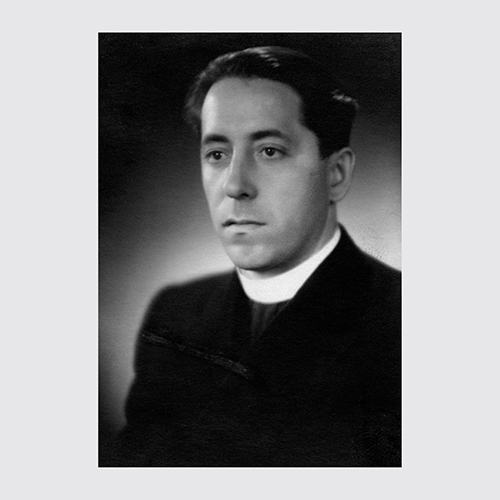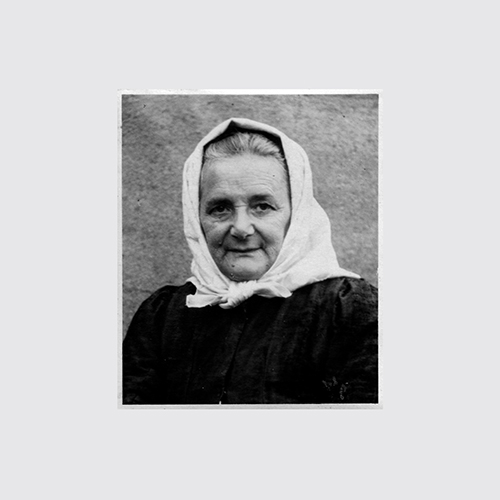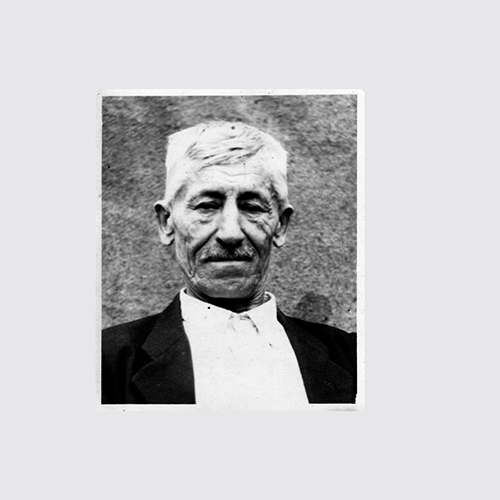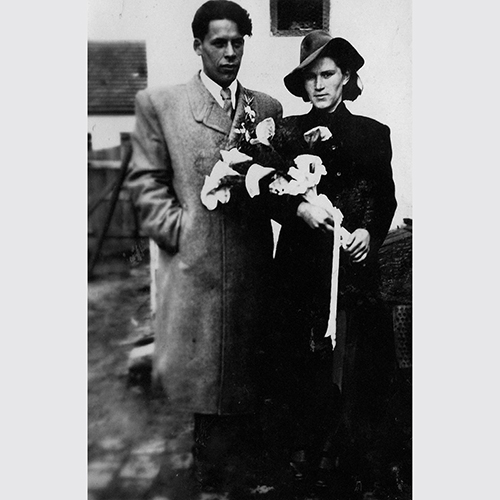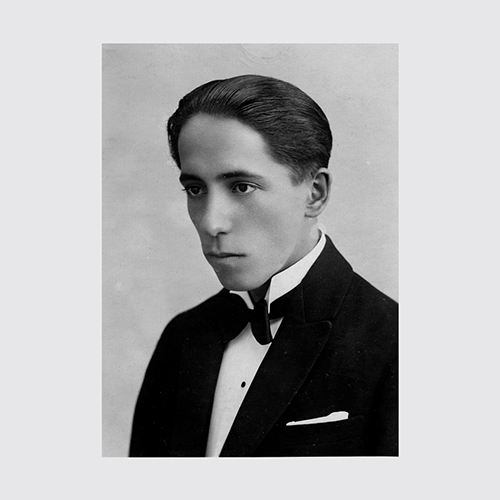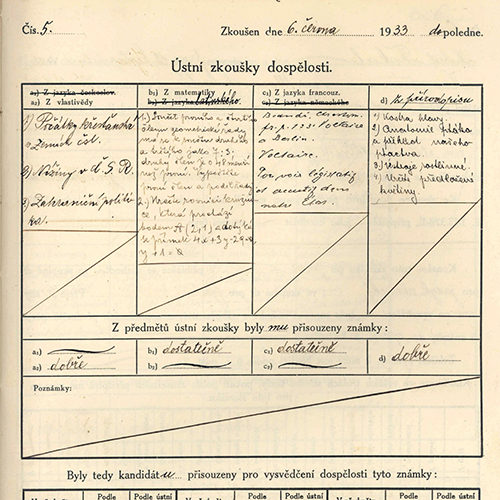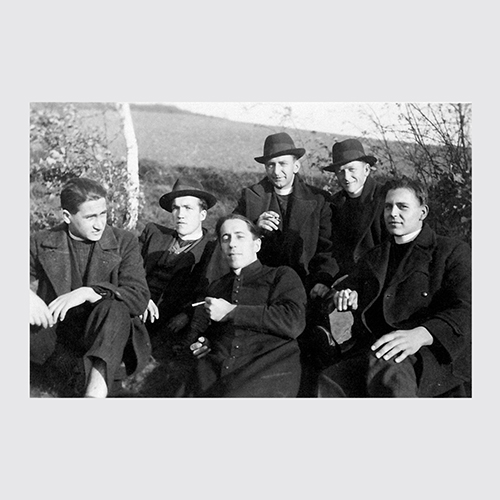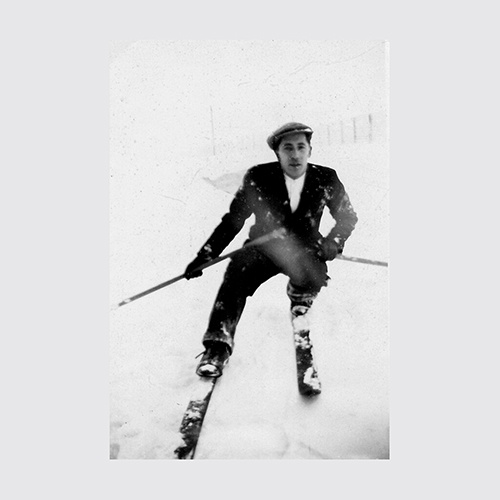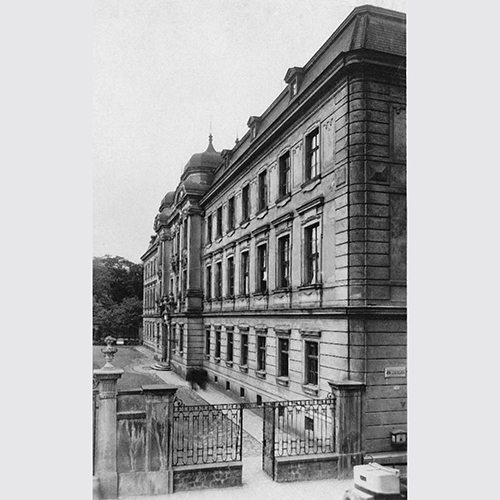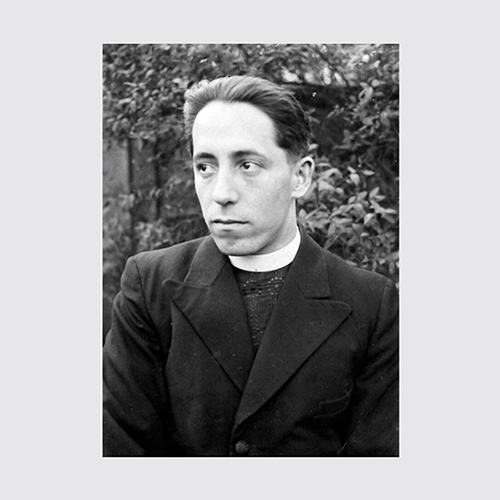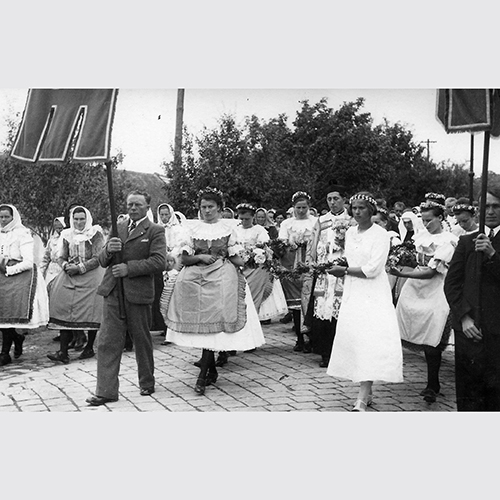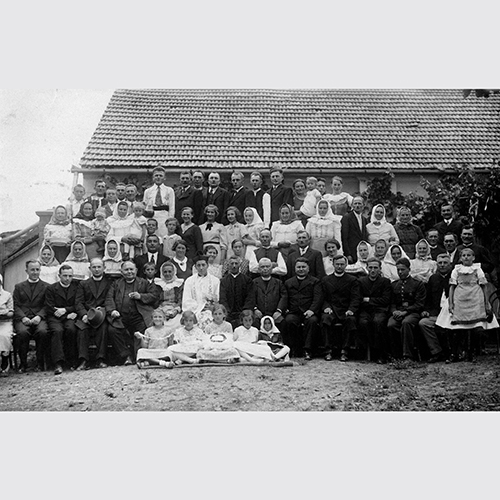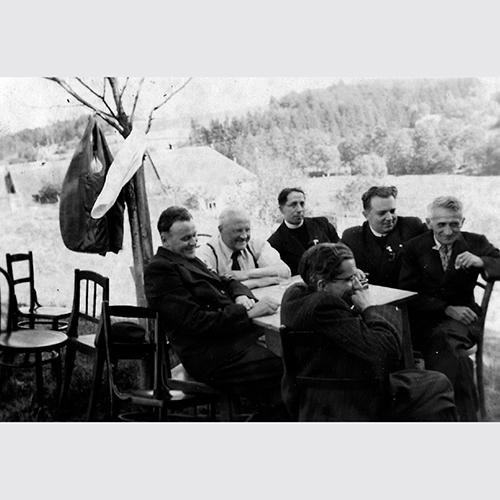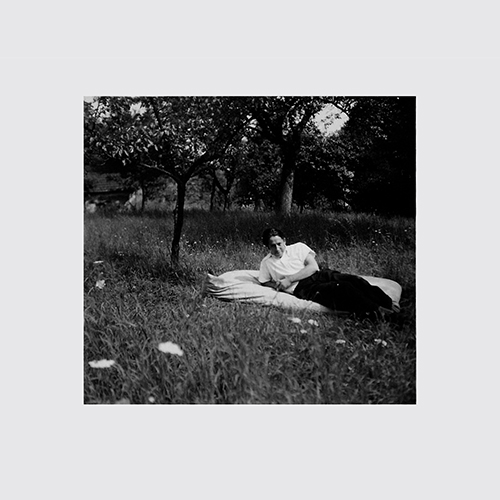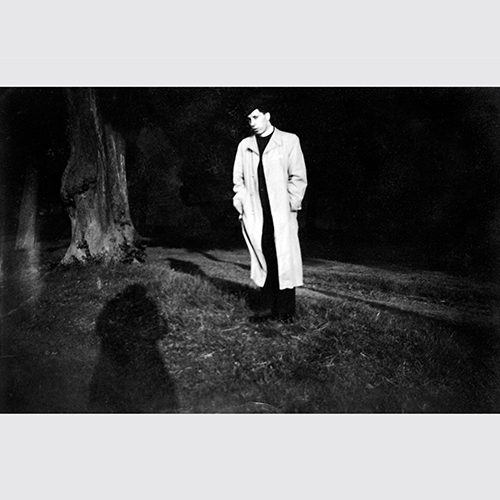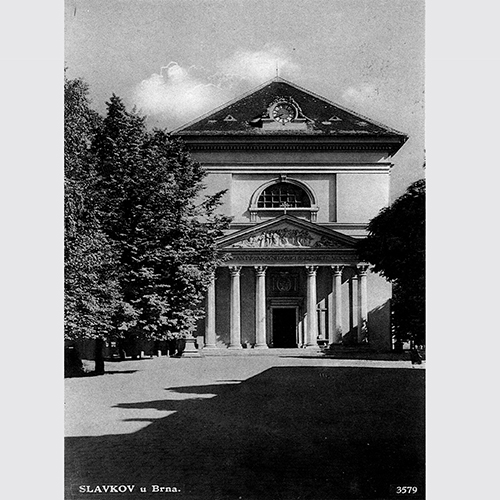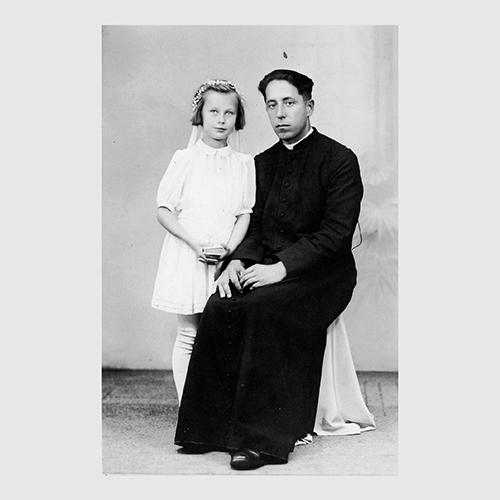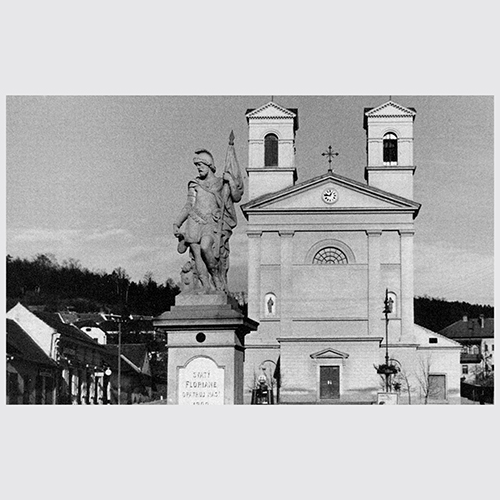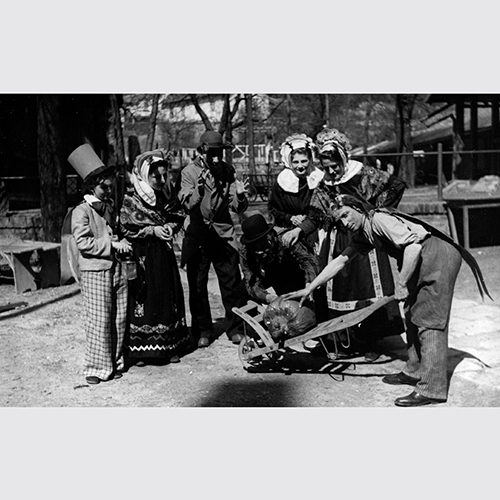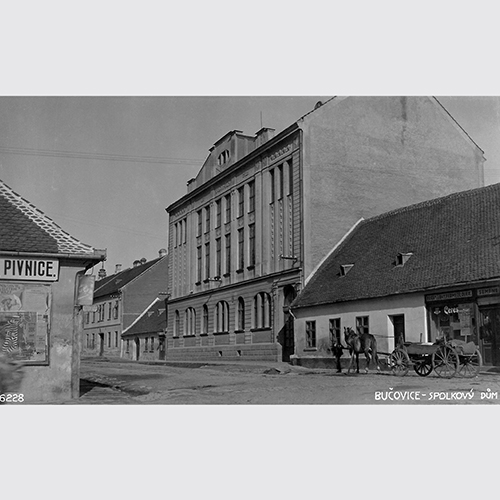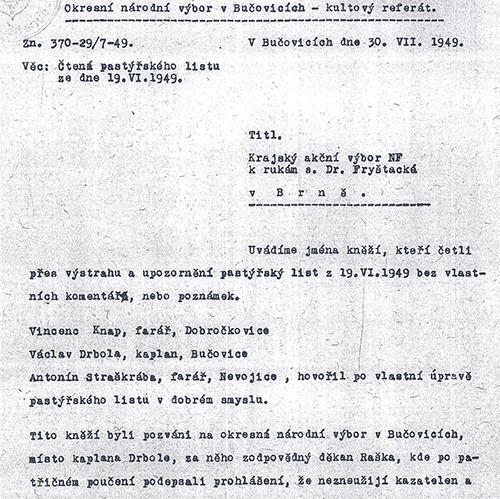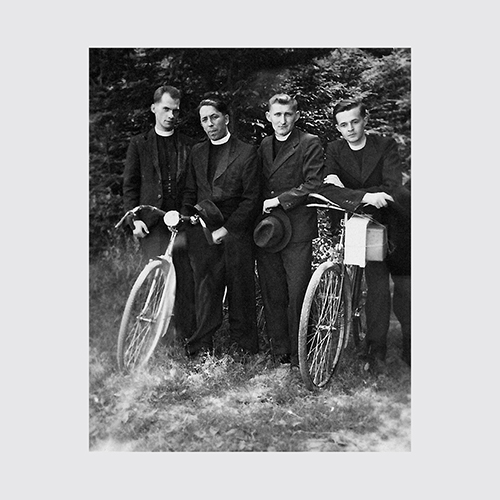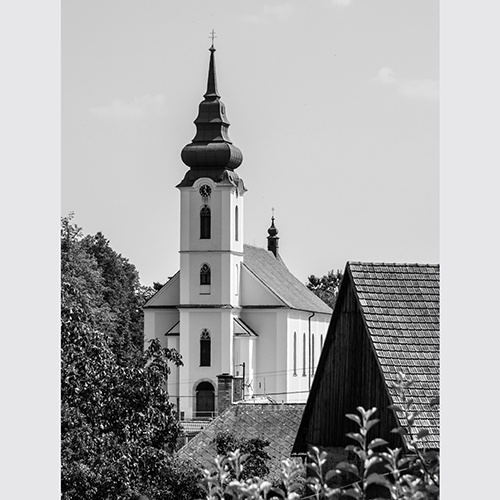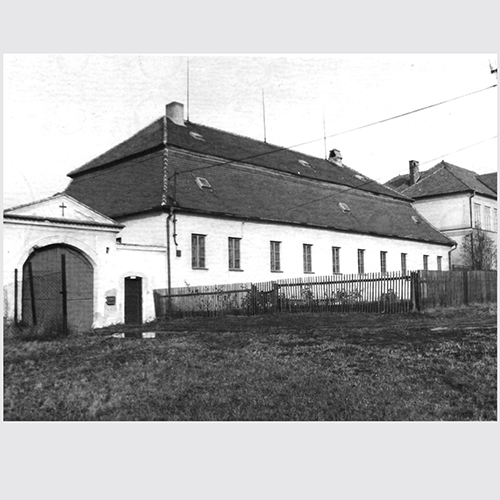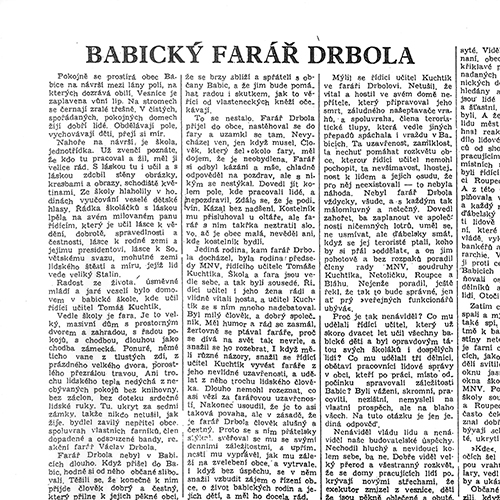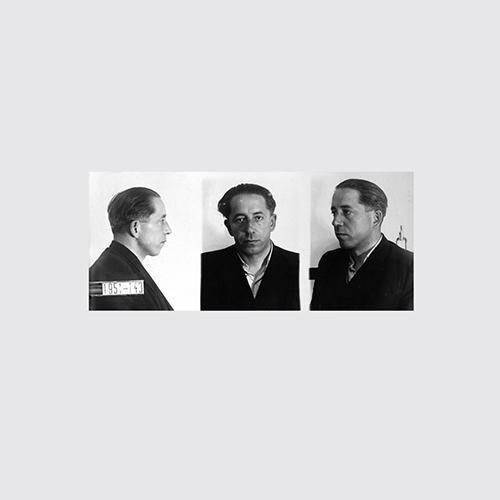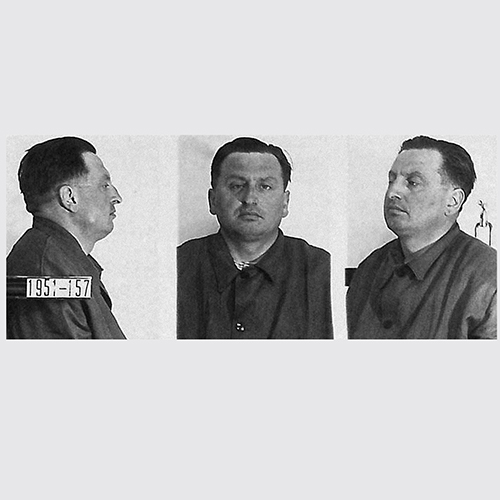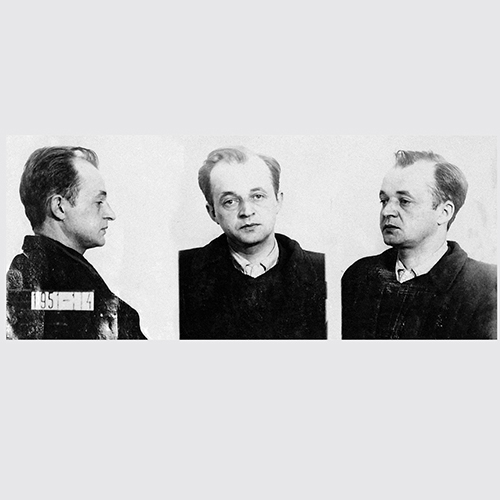Václav Drbola was one of the three priests who became victims of judicial murders in the so-called Babice trials in the early 1950s. He had been a parish priest in Babice in the Třebíč region since February 1950. He replaced Fr. Arnošt Poláček, who was arrested and sentenced in a staged trial for 20 years of prison.
Fr. Václav Drbola managed to resist the pressure of the emerging communist regime in the difficult times after the onset of the totalitarianism. At all his workplaces, especially in Bučovice, he was involved in work with youth and in social and cultural life. He gained respect and trust of his parishioners. Despite threats, he read out the officially banned Circular to the Catholic Clergy and Believing People document signed by Archbishop Josef Beran.
In a document called History of the Events of the Society of Catholic Companions in Bučovice, Drbola described his hard and futile struggles to preserve the Catholic Association in Bučovice, which the totalitarian regime ordered to be closed. He had subsequently hidden the document. It was discovered by chance in 2008 and includes an accurate analysis of the overall situation after February 1948.
Václav Drbola was executed together with Fr. František Pařil in Jihlava on 3. August 1951.
Biography
1912 Václav Drbola was born on the 16th of October 1912 in Starovičky near Hustopece, in South Moravia. His father, Václav Drbola, a cottage farmer, was deeply affected by the experience of the war. His mother Růžena was four years younger. Besides Václav, the parents had six other children. Václav was getting on particularly well with his brother Jaroslav, whose weeding he later officiated in the church in Slavkov. Václav Drbola walked about an hour every day to the grammar school in nearby Hustopeče.
1933 On the 6th of June 1933, the Hustopeče Gymnasium issued Václav Drbola a "Certificate of Adulthood" with the number 5.
1938 After graduation, Václav Drbola moved to Brno to study and become a priest. There, he experienced years of peace and the possibility of sports and cultural activities. At a time, Europe was already preparing for the war. On the 5th of July 1938, on the Feast of Saints Cyril and Methodius, he was ordained a priest by Bishop Josef Kupka in Brno. Shortly after, he celebrated his very first mass in Starovičky.
1940 Václav Drbola was regularly meeting with Catholic poets and writers, for example Jan Alois Zahradníček and Fr. Jan Dokulil. He felt very well during an outdoor celebration after the the first mass of Fr. Vincenc Vlacha from Frankův Zhořec in 1940. Drbola worked first as a co-operator in Slavkov near Brno and was later transferred to Čučice near Oslavany. However, in 1943 he had to move again when transferred to Bučovice, where he lived to see the end of the war as a local chaplain.
1945 Václav Drbola became an active organizer of cultural events in Bučovice. Once the war ended, he became involved in the People’s Party and in the activities of the Sokol and other associations. Local enthusiasts were often gathering in the local Catholic House - they called themselves the Society of Catholic Companions in Bučovice. Drbola was preparing children's performances. The communists were watching him.
1948 After the dissolution of the Society of Catholic Companions in Bučovice, Václav Drbola at least defended the theatre society, which was preparing the performance of fairy-tale Mlynářovice Maruška for the 24th of October 1948. However, the fairy-tale was banned before its premiere. "The SNB (national police force) officer brought me a letter sent by the ONV (local national committee) in Vyškov on orders of the local action committee, and the letter said that the theatre is forbidden from staging the play, thus the permission for the play is revoked. I was in tears," described Drbola in a report he had kept, which was found in 2008 in an old pelmet. He named the report the History of the Events of the Society of Catholic Companions in Bučovice. Drbola also described very accurately the general atmosphere in the country after the coup in February 1948.
Drbola put up a poster that caused a great attention in Bučovice, it said the play was not allowed to be performed. On the 10th of December 1948 the activities of the association were completely stopped and the attempt of defending in court ended, of course, in failure.
1950 In February 1950 was Václav Drbola transferred to the parish in Babice in the Třebíč region, where the poet Jakub Deml used to live. He moved in haste because the local parish priest, Fr. Arnošt Poláček, was arrested and imprisoned. On the 25th of June 1950, Václav Drbola met Fr. Jan Bula at the Miloslav Ambrož’s first mass in Velké Meziříčí. Little did he know, that both of them will soon be falsely accused, convicted and killed.
1951 Pressure from the regime was increasing. On the 30th of April 1951 was Jan Bula arrested in Rokytnice during a large wave of arrests. They arrested him at the school where he taught religion. On Sunday, the 17th of June 1951, at four o'clock in the morning, secret police infiltrated the courtyard of the rectory in Babice and arrested Václav Drbola.
Ladislav Malý, an adventurer, was present in the region and claimed to be organising the resistance. His activities culminate on the 2nd of July 1951 with a tragic attack at a school in Babice and shooting of three local officials. In a following shootout, the attackers are caught in a nearby field and Malý is shot dead. In another wave of arrests, the parish priest Fr. František Pařil was arrested in Horní Újezd.
This is followed by the first staged trial in Jihlava with fourteen accused. On the 14th of July 1951, the court handed down seven death sentences. Václav Drbola was executed on the 3rd of August 1951. Fr. František Pařil also became a victim of judicial murder. Jan Bula was tried and executed later. He died on the 20th of May 1952 in Jihlava.
The trials were accompanied by a massive hate campaign against the convicts, the freeman farmers, and the Catholic Church. The priests were being associated with the attack at the school in Babice, regardless of the fact that Fr. Bula and Fr. Drbola had been arrested before it happened.
1968 Relatives of Václav Drbola have collected the funerary urn with his remains at the crematorium in Brno. They took advantage of the short period of relaxation in the 1960s. They hid the urn at home and in 1984, during another funeral, they secretly placed it in the family grave in Starovičky.
2011 The beatification process began by joining the already ongoing process of the beatification of Jan Bula. Václav Drbola was fully rehabilitated by the state authorities in 1990-1997. On the 19th of December 2015, Bishop Vojtěch Cikrle solemnly closed the diocesan phase of the canonization procedure in the Cathedral of St. Peter and Paul in Brno.
Colophon
Opening:
15. 8. 2021
Initiator:
Římskokatolická farnost Bučovice
při kostele Nanebevzetí Panny Marie,
P. Mgr. Tomáš Fránek, BA, administátor farnosti
Text author:
Luděk Navara, Občanské sdružení PAMĚŤ
Cooperation:
Miroslav Kasáček, Občanské sdružení PAMĚŤ
Architectural solution and production:
Jan Říčný, Filip Kosek
Graphic design:
Jan Svoboda
Production:
Jakub Jarcovják, Daniel Golík
Webdesign:
Fenomio, s.r.o.
Archive sources:
Archiv bezpečnostních složek Praha
Moravský zemský archiv Brno
Státní okresní archiv Břeclav se sídlem v Mikulově
Biskupství brněnské
Gymnázium T. G. Masaryka, Hustopeče
Městské muzeum a galerie v Hustopečích
Farnost Velké Meziříčí
Farnost Křtiny
Farnost Čučice
Thanks:
Mgr. Soňa Nezhodová, Městské muzeum a galerie v Hustopečích
Mgr. Jan Sedláček, Gymnázium T. G. Masaryka, Hustopeče
Vladimír Drbola, Starovičky
Jaroslava Fialová, Slavkov u Brna
Josef Holacký, Starovičky
Mgr. Jan Růžička, Ph.D.
Ing. Marie Matějů
Biskupství brněnské
Marie Kotolánová, Bučovice

Supported by a grant from Iceland, Liechtenstein and Norway
under EEA funds
www.fondyehp.cz/kultura
